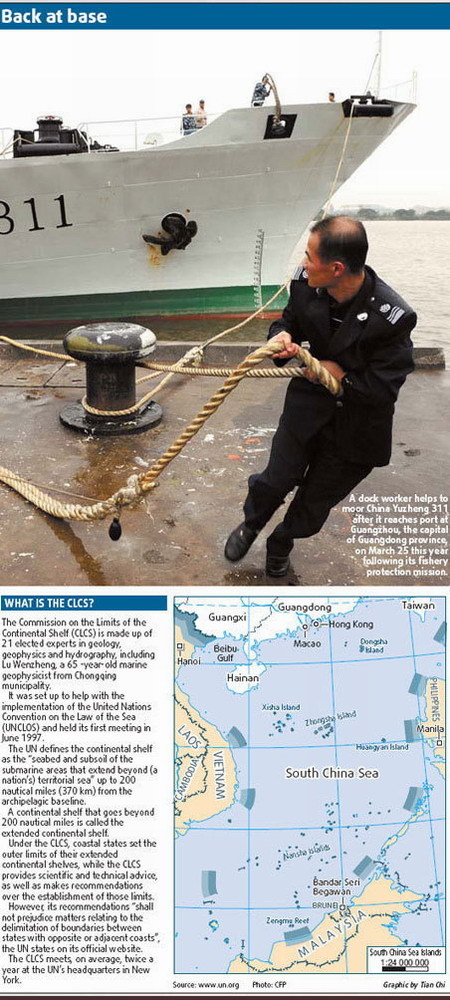
|
CHINA> National
 |
|
Change tack with sea strategy: China experts
By Zhang Xin (China Daily)
Updated: 2009-05-13 09:48 Wang said China should now secure its inherent sovereignty in the South China Sea by reinforcing the supervision and administration, and suggested the nation set up a "coast guard" force, such as the kind employed by the United States. Several patrols had been launched this year, he said, with authorities in Guangdong province and the Guangxi Zhuang autonomous region in March sending missions to the South China Sea to curb illegal fishing.
Officials have also proposed using new boats, as well as retired naval ships, for missions over the next three to five years. "Intensive, routine patrol missions are necessary but not adequate," said Gao Zhiguo, dean of the China Institute for Marine Affairs, who explained that a clear maritime strategy was vital to guarantee peace and prosperity. China had for too long focused on the land and ignored the strategic importance of developing an efficient sea defense, leaving it lagging behind the likes of the US and the Philippines, he said, and claimed China's maritime forces were organized in a scattered departmental structure. Wang Hanling agreed, and said: "Those maritime forces are also usually functioning separately, without proper coordination, which leads to guarding missions being unfocused and weak." He cited the US Coast Guard as a model China should adopt as they are an "all-in-one force", providing military, multi-mission and maritime services to protect the public, environmental and economic security interests, and also patrol international waters. "Beside strengthening naval capacity, China will have to overcome the outdated mindset of selfish departmentalism to bring a fundamental reform to the mechanism," he added. On May 5, a week before the CLCS deadline, the Chinese foreign ministry announced the establishment of the Department of Boundary and Ocean Affairs, which will be dedicated to tackling land and maritime border disputes through diplomatic channels. Wang said it was a significant and vital step for clearing the bottleneck in the nation's maritime development.

|